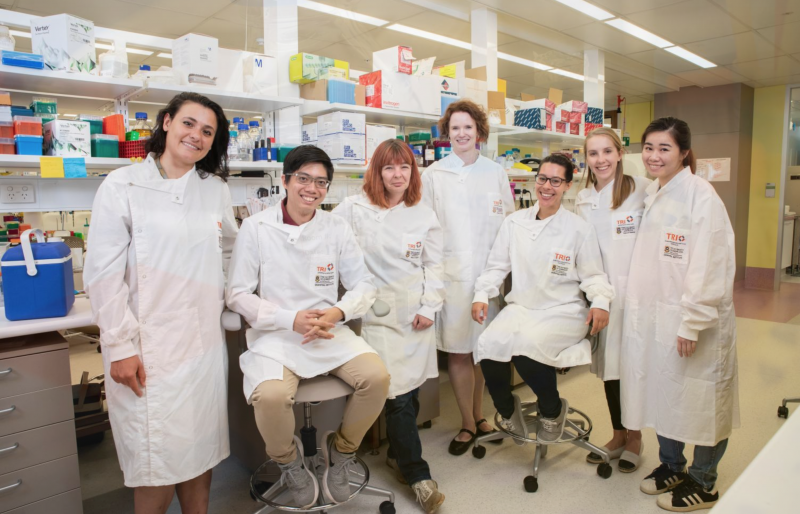Born in Adelaide but raised in northern Scotland, Dr Fiona Simpson joined the workforce at the tender age of 12.
“After my father died, my mother was left to raise four daughters on a widow’s pension,” Dr Simpson explains.
“It was a struggle, so I started working in petrol stations, washing dishes and cleaning out fishing boats full of fish guts and diesel.”
It wasn’t glamorous, but it paid the bills and taught Dr Simpson resilience – a quality that has proven useful throughout her career.
Hoping to tame her rebellious nature and harness her academic potential, one of Dr Simpson’s teachers arranged a job for her with a local vet. The plan proved successful and Dr Simpson fell in love with science.
In a few short years she went from scrubbing out lambing sheds to completing a bachelor’s degree in biochemistry in Edinburgh. A PhD at Cambridge University followed, then a Wellcome Trust Postdoctoral Fellowship at the Scripps Institute in California.
In 2000, Dr Simpson moved to Brisbane for a research job at UQ, where 10 years later she encountered Professor Ian Frazer, the co-creator of cervical cancer vaccine Gardasil. Professor Frazer offered Dr Simpson her own lab undertaking immune cell biology research and investigating cancer – the only condition being that she focus on developing ‘bench to bedside’ applications.
Dr Simpson’s crusade to improve treatments for cancer patients was deeply personal – she had lost her mother Isabel to cancer in 1999. Her team set out to determine why around 85 per cent of patients with head and neck cancers didn’t respond to antibody treatments.
“We know that to be effective, cancer drugs such as cetuximab have to bind to a cell’s target receptors to produce an immune response that then fights the cancer,” Dr Simpson says.
“We tested a hypothesis that involved changing cell patterns using Stemetil (prochlorperazine), a drug used for nausea, and it worked!”
The discovery was just the beginning. The next step for Dr Simpson and her team was trialling whether the combination of Stemetil and cetuximab would reduce or eliminate tumours.
After undertaking preclinical work and a proof of mechanism trial dubbed ‘CESTEM’, the results were conclusive – the drug combination could move the target in patients.
Dr Simpson and her team are now in the final stages of a Phase IB trial testing dose escalation and efficacy in volunteer patients. If all goes to plan, CESTEM will move into a Phase II clinical trial in 2019, followed by a Phase III trial to test whether it is better than current treatments.
A positive result could revolutionise treatment for patients with head, neck and breast cancers, as well as those suffering with adenoid cystic carcinomas.
While the road ahead is bound to be bumpy – Dr Simpson’s lab has been on the verge of shutting down four times due to lack of funding – the rebel in her refuses to give up. You could call it resilience, but Simpson herself prefers ‘sheer bloody-mindedness’.
“My team and I were told time and time again that we were wrong, but we kept going because our data was reproducible every single time. Our experiments didn’t lie. A lot of it has now proven correct.
“So we could give up now – struggling to keep everything funded and pushing to Phase II – but we won’t and we can’t. For us it is all about the patients.”
The Faculty of Medicine acknowledges The PA Research Foundation, National Breast Cancer Foundation, Cancer Council Queensland and Rotary International (Nundah) for generously supporting improved care for cancer patients.
Full Article: https://stories.uq.edu.au/medicine/rebel-with-a-cause/index.html

